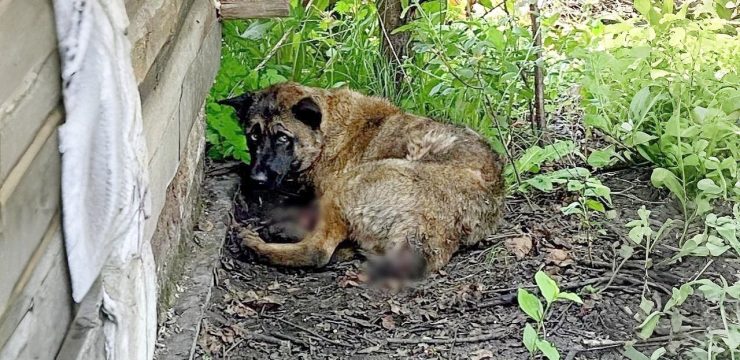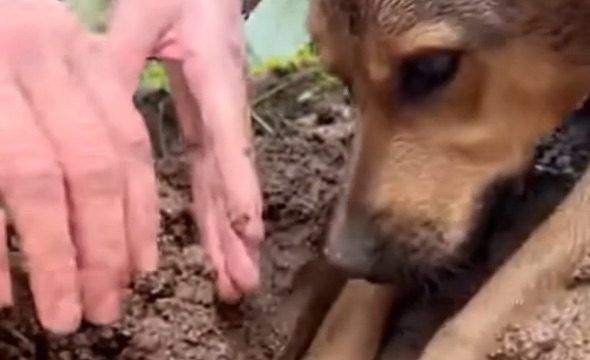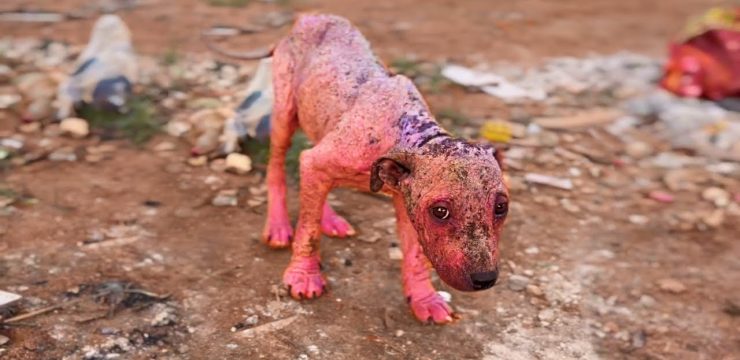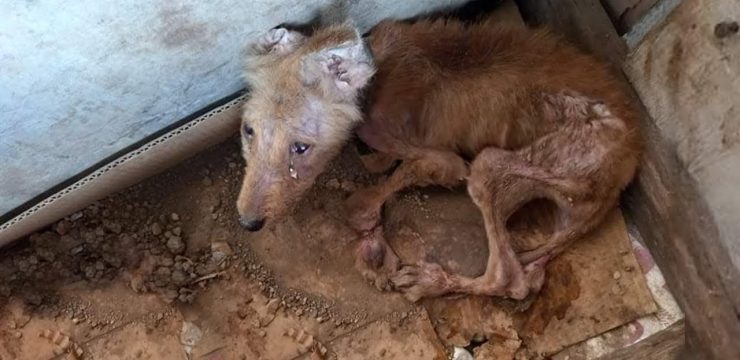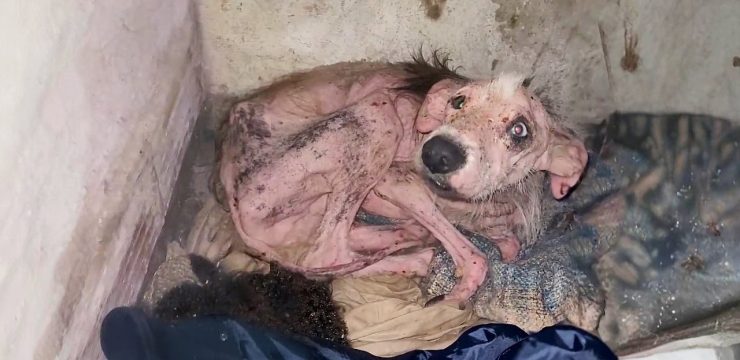Just sixteen hours after being declared dead, an eight-month-old baby girl shocked grieving relatives when she suddenly grabbed the fingers of a loved one who had reached into her small white coffin to say one final goodbye. The unexpected movement turned tears of sorrow into gasps of disbelief, triggering a whirlwind of emotions that would continue for days.
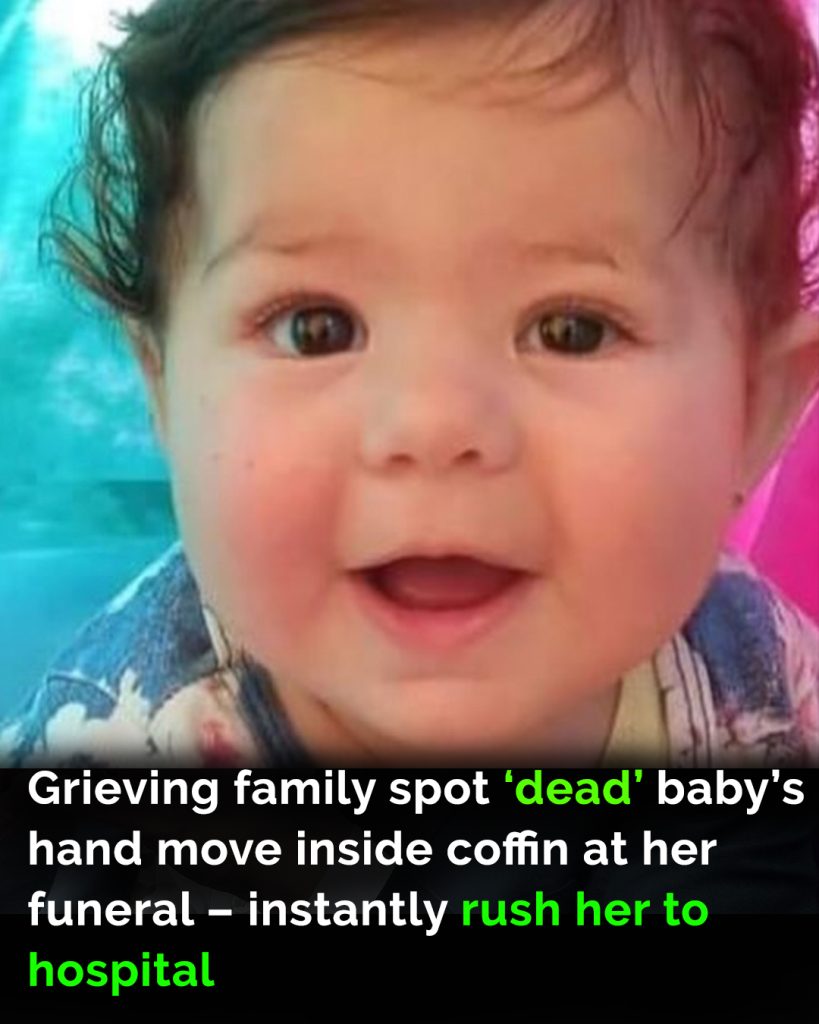
It all began on the morning of October 19, 2024, when Cristiano Santos and Katia Moreira faced every parent’s worst nightmare. They discovered their baby daughter, Kiara, unresponsive at home. In a panic, the couple rushed her to Faustino Riscarolli Hospital in Correia Pinto, a small and normally quiet town in the Brazilian state of Santa Catarina. The hope of a miracle accompanied them on the frantic journey, but once at the hospital, doctors quickly examined the infant and delivered the crushing news—Kiara had no pulse, no breath, and showed no signs of life. After a brief attempt to revive her, medical staff officially declared the baby dead.
Heartbroken and overwhelmed with grief, the family began preparing for a burial later that evening. A tiny white coffin was chosen, and loved ones gathered to say their goodbyes, mourning what felt like an unspeakable tragedy. But what happened next left everyone in the room reeling. During the viewing, as mourners gently touched Kiara’s lifeless body, someone noticed a small twitch. At first, it seemed like a trick of the eye, but then another person reached out to touch her fingers—and Kiara’s hand gripped theirs in return.
The room erupted in disbelief and confusion. What had been a solemn farewell turned into a scene of shock, tears, and screams. Could the baby truly be alive? Paramedics were called to the scene immediately. When they arrived, they found something that defied explanation. Kiara had a pulse. Her oxygen saturation was measured at 84%, which, according to the Cleveland Clinic, is dangerously low and requires urgent medical attention. Even more baffling was that her body showed no signs of rigor mortis, a condition that usually sets in between six to eight hours after death. The medical team wasted no time. Kiara was rushed back to the same hospital where she had previously been declared dead.
For a brief, fleeting moment, there was hope. Cristiano and Katia clung to it, believing that their daughter—whom they had already grieved—might be given a second chance. But once again, their dreams were shattered. Despite the efforts of the medical team, Kiara’s heart stopped. She was declared dead—again.
The emotional toll this took on her family was unimaginable. They had suffered the unbearable pain of losing a child not once, but twice, within a single day. “We were already devastated,” Kiara’s father, Cristiano, told local media, according to a report by the Mirror. “Then there came a little bit of hope, but then this ended up happening.” He referred to his daughter as “my miracle,” and the heartbreak in his words painted a picture of profound loss.
The bizarre and tragic circumstances surrounding Kiara’s death sparked outrage in the community and across the country. Questions swirled about how a hospital could mistakenly declare a baby dead—not once, but twice—in just 16 hours. In response to growing public pressure, Brazil’s Scientific Police, which handles forensic investigations, were called in to examine what had gone wrong. Correia Pinto City Hall also responded by issuing an official apology to Kiara’s family and launching a formal 30-day investigation into the incident.
A spokesperson for the city emphasized their commitment to the health and safety of residents. “The Municipality of Correia Pinto reiterates its commitment to provide the best care for all citizens and reinforces that, under no circumstances, can any professional issue certificates or statements without proper authentication of the patient’s condition,” the statement read. They further emphasized that all healthcare professionals are expected to follow strict protocols and are continuously trained to prioritize patient lives and well-being.
Despite this assurance, the family continued to seek answers. More than a month after Kiara’s tragic passing, the investigation’s findings had yet to be released to the public. Cristiano turned to social media to voice his frustration. In a Facebook post dated January 30, he expressed disbelief over preliminary conclusions that seemed to support the hospital’s handling of the case. “The answer we were expecting would come, really did… A life that was in vain,” he wrote. “Just died of natural causes??? How is this natural cause??? Just died and no one needs to know???”
His anger and grief were palpable. “What they did for my daughter can’t be done to a dog!” he added. “God will charge, we were already expecting this answer, after all, the rope only breaks from the weaker side! God is watching! The world has seen it!”
Cristiano’s words reflect a deep sense of injustice that remains unresolved. For him and Katia, the experience has left a wound that may never fully heal. It’s a tragic reminder of how even in our most advanced medical systems, errors can occur—errors that have devastating consequences. And while hospitals and municipalities issue statements and launch investigations, families like Kiara’s are left grappling with a loss that feels all the more painful for its confusion and uncertainty.
At the heart of this story is a little girl who briefly came back to life in the arms of those who loved her most. Kiara’s brief return, though heartbreaking in its finality, left an indelible impact—not just on her family, but on everyone who heard her story. It’s a haunting tale of hope, sorrow, and the fragile boundary between life and death.
